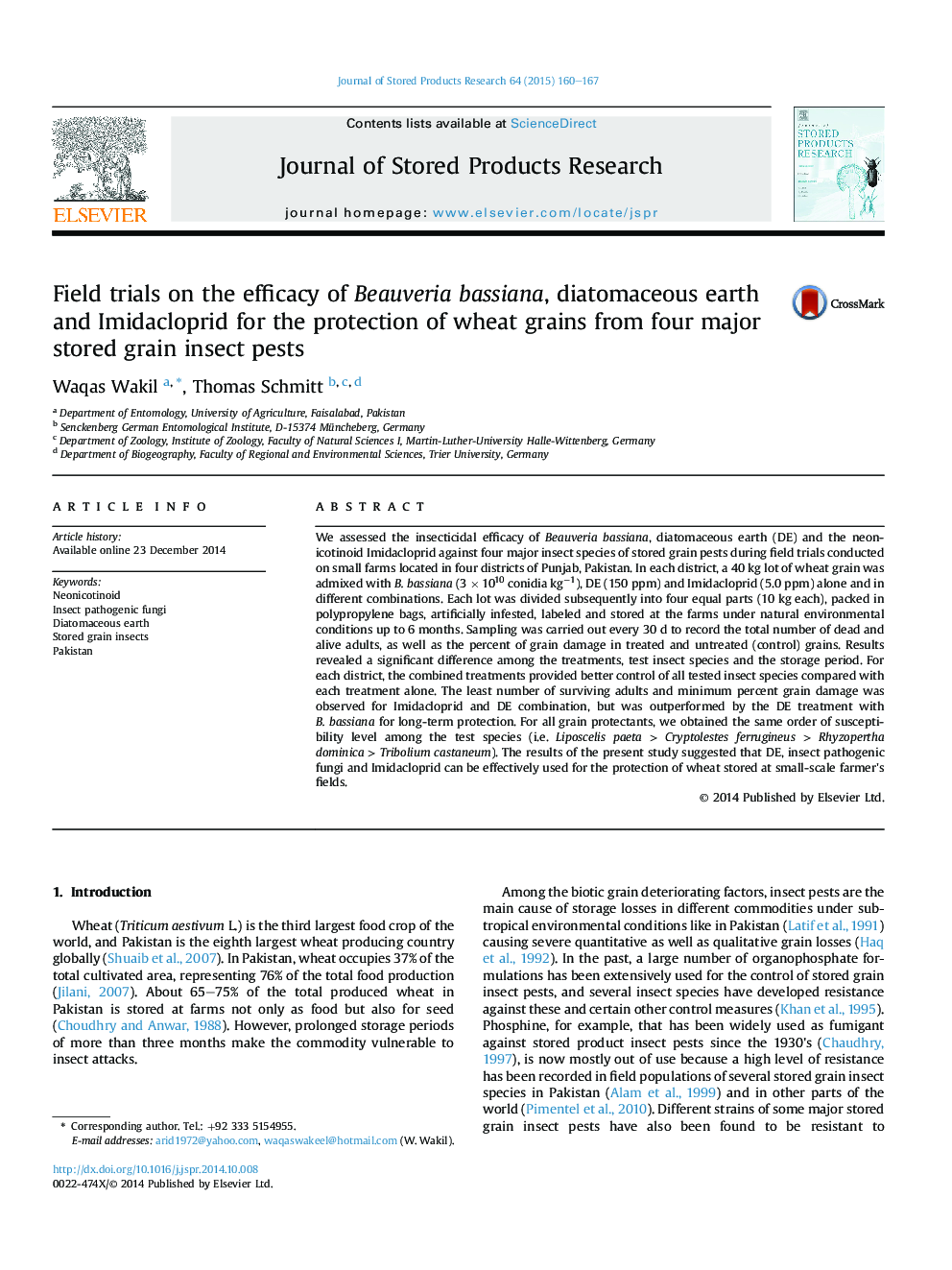| Article ID | Journal | Published Year | Pages | File Type |
|---|---|---|---|---|
| 4516918 | Journal of Stored Products Research | 2015 | 8 Pages |
Abstract
We assessed the insecticidal efficacy of Beauveria bassiana, diatomaceous earth (DE) and the neonicotinoid Imidacloprid against four major insect species of stored grain pests during field trials conducted on small farms located in four districts of Punjab, Pakistan. In each district, a 40 kg lot of wheat grain was admixed with B. bassiana (3 Ã 1010 conidia kgâ1), DE (150 ppm) and Imidacloprid (5.0 ppm) alone and in different combinations. Each lot was divided subsequently into four equal parts (10 kg each), packed in polypropylene bags, artificially infested, labeled and stored at the farms under natural environmental conditions up to 6 months. Sampling was carried out every 30 d to record the total number of dead and alive adults, as well as the percent of grain damage in treated and untreated (control) grains. Results revealed a significant difference among the treatments, test insect species and the storage period. For each district, the combined treatments provided better control of all tested insect species compared with each treatment alone. The least number of surviving adults and minimum percent grain damage was observed for Imidacloprid and DE combination, but was outperformed by the DE treatment with B. bassiana for long-term protection. For all grain protectants, we obtained the same order of susceptibility level among the test species (i.e. Liposcelis paeta > Cryptolestes ferrugineus > Rhyzopertha dominica > Tribolium castaneum). The results of the present study suggested that DE, insect pathogenic fungi and Imidacloprid can be effectively used for the protection of wheat stored at small-scale farmer's fields.
Related Topics
Life Sciences
Agricultural and Biological Sciences
Agronomy and Crop Science
Authors
Waqas Wakil, Thomas Schmitt,
